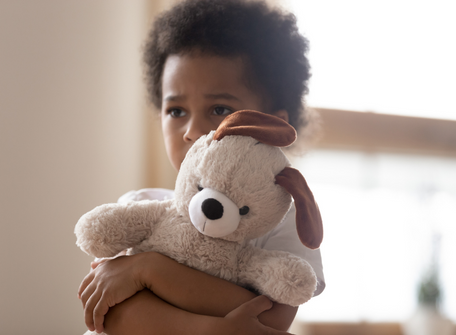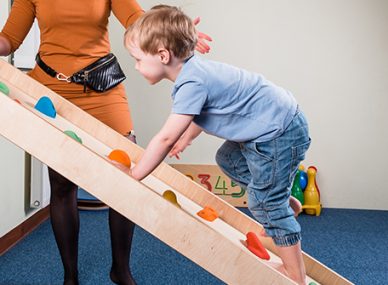Two out of three children experience at least one traumatic event by age 16. Traumatic memories and adversity from childhood can persist well into adulthood. You might wonder whether you need therapy if you experienced abuse or trauma as a child.
A mental health professional might not be able to fit into your busy schedule. Many people aren’t even sure if their experiences qualify them as childhood trauma victims. Behavioral health specialists can help you feel better.
For more information on why evidence-based treatment is important for unresolved trauma, continue reading. Also, we will discuss some of the types of therapies that can help you recover.
What Qualifies As Childhood Trauma?
Traumatic events are those that pose a threat to a child’s safety, including those that are frightening, violent, or dangerous. It is common for children to suffer prolonged childhood trauma and to live in a constant state of stress without any respite. Mental and physical symptoms are experienced by others after a one-time event.
Some Examples Of Childhood Trauma Include:
- Physical, emotional, or sexual abuse
- Neglect, homelessness
- Being witness to family violence in the home
- Bullying, racism, school or community violence
- Natural disasters like earthquakes, hurricanes, or fires
- Life-threatening or serious accidents or illnesses
- A violent death of a loved one
- Refugee and war experiences
- Stressors in military families such as parental deployment, loss, or injury
How Do You Know If You Have Unresolved Childhood Trauma?
Traumatic experiences are associated with post-traumatic stress disorder, fear, guilt, shame, self-blame, and chronic physical pain. Relationships and jobs can be affected as a result. Childhood trauma can even lead to the abuse of alcohol as a coping mechanism.
The following are some physical, emotional, and behavioral symptoms of childhood trauma in adults:
- Anxiety
- Depression
- Panic attacks
- Compulsive behaviors
- Eating disorders
- Suicidal thinking or behaviors
- Poor concentration
- Impulsiveness
- Poor conflict negotiation skills
- Low self-esteem
- Self-harm
- Isolation
- Fatigue
- Sleep problems
Chronic Pain And Chronic Inflammation
A child with issues is not the same as one with unresolved childhood trauma. In retrospect, many adults can identify destructive patterns, such as an emotionally unavailable parent or poor boundaries, in their childhoods. Adult mental health conditions can sometimes be triggered by childhood issues. Therapy can also benefit childhood issues, just as it can with childhood trauma. However, these issues do not reflect trauma experienced during childhood.
When Should You Go To Trauma Therapy?
Therapy interventions should be opted for as early as possible. It can help reduce the impact of childhood trauma on a child’s life and potentially stop from lingering emotional issues and negative effects out of traumatic experiences. In young children and older children, the signs and symptoms of trauma tend to be different. Seek care as soon as possible if you notice these symptoms.
PRESCHOOL CHILDREN
- Separation anxiety
- Crying or screaming excessively
- Nightmares
- Poor appetite, failure to thrive
ELEMENTARY SCHOOL CHILDREN
- Anxiety, fear
- Guilt, shame
- Sleep difficulties
- Problems with concentration
MIDDLE SCHOOL AND HIGH SCHOOL CHILDREN
- Anxiety, depression, isolation
- Eating disorders
- Self-harm
- Drug or alcohol abuse
- Risky sexual behaviors
- Other self-defeating behaviors
The effects of childhood trauma can be wide-ranging and complex. It is possible, however, to recover fully and successfully. Traumatic events determine the type of treatment that is appropriate for each individual. It is possible to regain independence, resilience, intuitiveness, self-compassion, and self-confidence with the right therapy, positive solutions, and support. Children who have experienced childhood trauma can benefit from child therapy by leading a values-driven life that is emotionally and physically healthy.
How Does Child Therapy Work?
Therapy teaches kids by doing. Children will learn coping skills and relaxation skills from their therapist. Combining age-appropriate play with talking will help them build their strengths. Families (or parents) may be involved with younger children. The picture looks like a drawing, a game, and a conversation. Teens and older kids will spend time in therapy learning the skills they need. During this process, feelings will be discussed and problems will be solved. The purpose of therapy is to build helpful thinking patterns and healthy behavioral habits.
What to Expect During Your First Child Therapy Session
Your first step has been taken. In order to help your child, you noticed he or she was struggling. The first therapy appointment for your child has been scheduled.
Now what?
The first child therapy session is designed to gather a full picture of your concerns. In addition, it is important to understand your child and family. You will spend time with your child therapist learning about your child’s needs and goals. Following up on your child’s presenting concerns, they will ask about their background and history. Your child’s current symptoms or struggles are likely to come up in conversation.
Preparing For Your Child’s First Therapy Session
Bring any documents you think your child therapist will find useful. Our child therapist at Hope AMC Center will guide you through fixing your appointment. Feel free to contact us if you have any questions.
The Takeaway
The treatment of child traumatic stress can take a variety of forms. The problem is that many children don’t receive the help they need. Child therapy can be started at any time but the earlier it starts, the better.
Call us at +971-529997075 to book your appointment.




